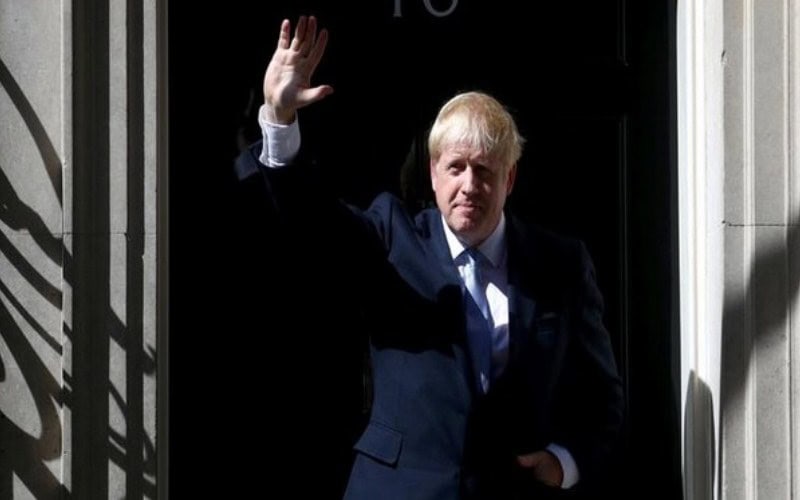London: Prime Minister Boris Johnson makes his debut on the global stage at the G7 summit this weekend, where all eyes will be on his chumminess with US President Donald Trump.
The summit in France opens on Saturday, the one-month anniversary of the gaffe-prone Brexit cheerleader and former foreign secretary becoming premier.
“What we’ll make of this is whether Boris Johnson manages to be a different person on the world stage than he managed as foreign secretary — because he was a disappointment,” Bronwen Maddox, director of the Institute for Government think tank, told AFP.
She said his 2016-18 spell as Britain’s foreign minister was marked by jokes, blunders and little in the way of achievements.
His meeting with Trump will be one of the highlights to watch for at the August 24-26 summit in the glitzy resort of Biarritz on France’s southwest coast.
“It is going to be very significant the type of message he sends,” said Anna Nadibaidze, a research and communications associate at the Open Europe think tank.
It will signal “where the UK wants to go forward after Brexit,” she said.
– ‘Britain’s Trump’ –
Trump says he is eager to meet Johnson, a fellow maverick who enjoys his approval. The pair have spoken several times by phone since Johnson became prime minister on July 24.
Trump’s first bilateral meeting will be with Johnson, ahead of other leaders including the summit’s host, French President Emmanuel Macron.
Before travelling to Biarritz Johnson is set to meet German Chancellor Angela Merkel in Berlin on Wednesday and Macron in Paris on Thursday.
Dubbed “Britain’s Trump” by some, Johnson shares with the US leader a deep scepticism of the European Union.
They are both divisive figures in their respective countries, men who play loosely with facts, espouse populist positions and enjoy provoking their opponents.
Johnson rose to power by presenting himself as the saviour of Brexit.
He wants to sign an ambitious trade agreement with Washington after Britain leaves the EU, as an antidote to the major economic shock that Brexit is predicted to cause if Britain leaves without a divorce deal.
Britain is due to quit the bloc on October 31, regardless of whether Johnson manages to secure an exit deal with Brussels — though he stressed in a letter Monday to EU President Donald Tusk that concluding a divorce deal was his government’s “highest priority”.
– Domestic front –
Success on the international stage would allow Johnson to assert his leadership on the domestic front, Maddox said, while a disappointing turn at Biarritz could leave him weakened as he prepares to face a likely vote of no confidence after parliament returns on September 3.
Such a move could trigger a general election.
“If Boris can look like a world leader it gives him an edge,” Maddox said.
However, a swift free trade agreement with Washington will come at a price, experts warned, suggesting it may entail changes in British foreign policy.
“Trump has shown a clear tendency to view trade as a zero sum proposition — so why he would suddenly become very nice and generous with the UK is not entirely clear,” said Dana Allin of the International Institute for Strategic Studies (IISS) think tank.
In the short term, a no-deal Brexit risks souring relations with Europe, which will damage the eventual shape of the new relationship between London and Brussels, he said.
“It’s dangerous,” said Allin, the IISS’s senior fellow for US foreign policy and transatlantic affairs.
“It’s also a delusion: you are not going to compensate for the damage to economic relations with the rest of the EU with some magical trade agreement with an America that is thousands of miles away.”
Open Europe’s Nadibaidze said striking a close relationship with the United States may require Britain to make “compromises at home” and “diverge a bit more from Europe” on major international issues.
“A lot will depend on the terms” of Brexit, she said.
So far, London has stuck with its European partners over the Iran nuclear deal — the United States has walked out — even though Britain is joining in with a US maritime security mission in the Gulf.
Johnson “faces a dilemma”, said Charles Grant, director of the Centre for European Reform think tank.
On topics such as Iran and climate change, he is closer to Brussels than Washington, and “there is a limit on how far he can go” in distancing himself from the EU, Grant said.

